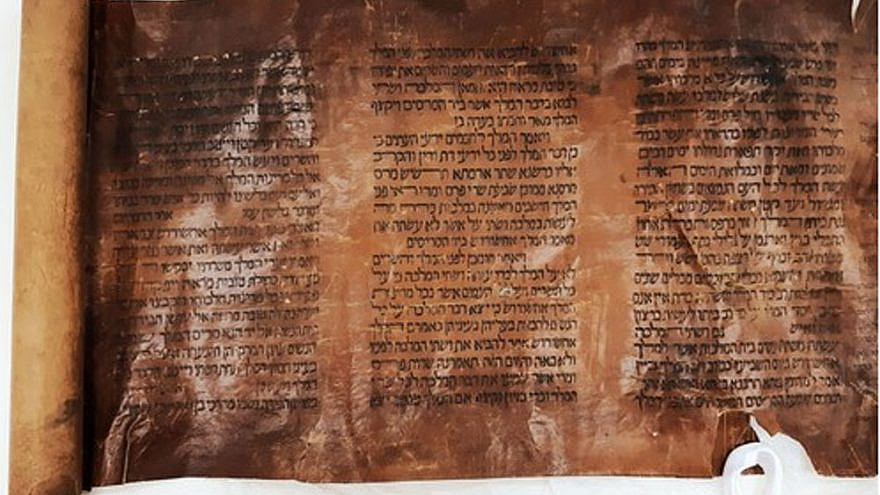One of the world’s oldest scrolls of Esther was recently gifted to the National Library of Israel in Jerusalem, the library’s blog announced on Monday.
The scroll, dating from medieval times, was a gift from long-standing supporters of the library Michael Jesselson and his family.
Scholars have determined that the scroll, known as Megillat Esther in Hebrew, was written by a scribe on the Iberian Peninsula around1465, prior to the Spanish and Portuguese expulsions that happened at the end of the 15th century. Their estimation was based on both stylistic and scientific evidence, including Carbon-14 dating.
According to Yoel Finkelman, the curator of the library’s Haim and Hanna Salomon Judaica Collection, the new addition is “an incredibly rare testament to the rich material culture of the Jews of the Iberian Peninsula. It is one of the earliest extant Esther Scrolls, and one of the few 15th-century Megillot in the world.”
Finkelman added that the library was “privileged to house this treasure and to preserve the legacy of pre-expulsion Iberian Jewry for the Jewish people and the world.”
The Scroll of Esther is read worldwide in Jewish communities during the holiday of Purim, which this year begins after sundown from Thursday night until sundown on Friday.
The scroll, which the library has made available online, is written on leather with brown ink and in a Sephardic script emblematic of a Torah scroll. On the first panel are blessings traditionally recited before and after the reading of the scroll, which attests to its ritual use in the Iberian Jewish community, says the library.
According to experts, few existing such scrolls exist from the medieval period, particularly from the 15th century. Torah and Esther scrolls from pre-expulsion Spain and Portugal are even rarer, with only a handful known to have survived.
Prior to the donation, the scroll was the only complete 15th-century Megillah in private hands.


























